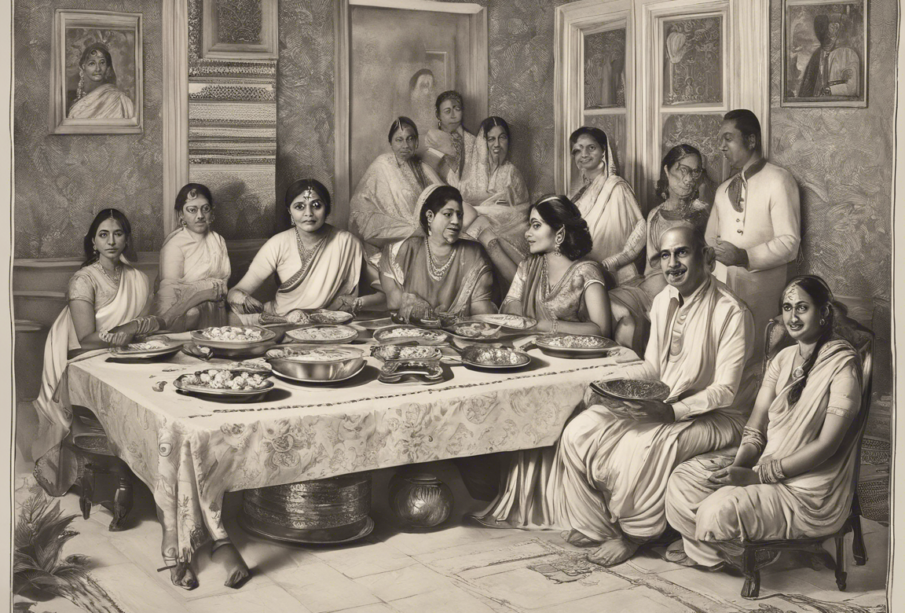Exploring the Flavorful World of Bengali Cuisine

Bengali cuisine is a treasure trove of flavors, colors, and textures that has been shaped by its rich history, diverse geographical influences, and unique cooking techniques. From the aromatic rice dishes to the delectable fish curries, every bite of Bengali food is a gastronomic delight that tickles the taste buds and leaves a lasting impression. In this blog post, we will delve into the captivating world of Bengali cuisine, exploring its signature dishes, key ingredients, culinary traditions, and the cultural significance of food in Bengali society.
The Rich Tapestry of Bengali Cuisine
Signature Dishes
Bengali cuisine is renowned for its fish dishes, with maach (fish) being an integral part of the traditional Bengali meal. Hilsa and Rohu are popular fish varieties often used to prepare iconic dishes like Maacher Jhol (fish curry) and Shorshe Ilish (Hilsa fish cooked in mustard gravy). Another famous dish is Chingri Malai Curry (prawns cooked in a coconut milk-based gravy), which highlights the subtle blend of sweet and savory flavors unique to Bengali cooking.
In addition to fish, rice plays a central role in Bengali cuisine. Bhaat (steamed rice) is the staple food of Bengal and is often served with a variety of side dishes such as Shorshe Bata Maach (fish cooked in mustard paste) and Aloo Posto (potatoes cooked with poppy seeds). Biryanis and Pulaos are also popular rice dishes prepared during festive occasions and celebrations.
Key Ingredients
Mustard oil, Panch Phoron (a blend of five spices – fenugreek, nigella seeds, cumin, black mustard seeds, and fennel seeds), Ghee, Poppy seeds, Coconut, and Mustard paste are some of the key ingredients that define the flavors of Bengali cuisine. The use of green chilies, mustard oil, and spices like turmeric, cumin, and coriander add depth and complexity to the dishes, creating a perfect balance of heat and flavor.
Culinary Traditions
Bengali cuisine is known for its elaborate cooking techniques and attention to detail. The practice of bhaja (shallow frying) and bhape (steaming) is commonly used to enhance the flavors of vegetables and fish. Charchari is a popular Bengali vegetable medley that combines seasonal vegetables with panch phoron and grated coconut, creating a dish that is both nutritious and flavorful.
The Cultural Significance of Food in Bengal
Food holds a special place in Bengali culture, with communal meals and elaborate feasts being an integral part of social gatherings and celebrations. Durga Puja, the biggest festival in Bengal, is marked by grand feasts called bhogs where devotees are served a traditional meal consisting of rice, lentils, vegetables, and sweets.
Panta Bhat (fermented rice), served with fried fish and green chilies, is a traditional Bengali dish consumed during Pohela Boishakh (Bengali New Year) and is believed to have cooling properties to beat the summer heat. Paanch Phoron (five spices) is a blend that is symbolic of the five essential elements of life according to Bengali tradition – earth, water, fire, air, and ether.
Frequently Asked Questions (FAQs)
Q1: What are some must-try dishes in Bengali cuisine?
A1: Some must-try dishes in Bengali cuisine include Shorshe Ilish (Hilsa fish in mustard gravy), Chingri Malai Curry (prawns in coconut milk gravy), Dhokar Dalna (steamed lentil cakes in a spicy gravy), and Mishti Doi (sweet yogurt).
Q2: Is Bengali cuisine predominantly vegetarian or non-vegetarian?
A2: Bengali cuisine is predominantly non-vegetarian, with fish being a staple ingredient in most dishes. However, there are also a variety of delicious vegetarian dishes like Aloo Posto (potatoes in poppy seed paste) and Shukto (mixed vegetable stew).
Q3: What makes Bengali sweets unique?
A3: Bengali sweets, or mishti, are known for their distinctive flavors and soft textures. They are often made with chhana (cottage cheese) and nolen gur (date palm jaggery), giving them a rich and creamy taste.
Q4: How is rice used in Bengali cuisine?
A4: Rice is a staple food in Bengali cuisine and is typically served as steamed rice (bhaat) along with various side dishes. Rice is also used to prepare traditional dishes like biryani and pulao during festivities and special occasions.
Q5: What are some popular street foods in Bengal?
A5: Some popular street foods in Bengal include Puchka (pani puri), Jhal Muri (spicy puffed rice snack), Ghugni (spiced chickpea curry), and Tele Bhaja (deep-fried snacks like potato fritters).
Exploring the vibrant and diverse flavors of Bengali cuisine is a culinary journey that offers a glimpse into the rich heritage and cultural tapestry of the region. Whether you savor the delicate flavors of a Shorshe Ilish or indulge in the sweet decadence of a Rasgulla, Bengali cuisine is sure to leave you craving for more.

